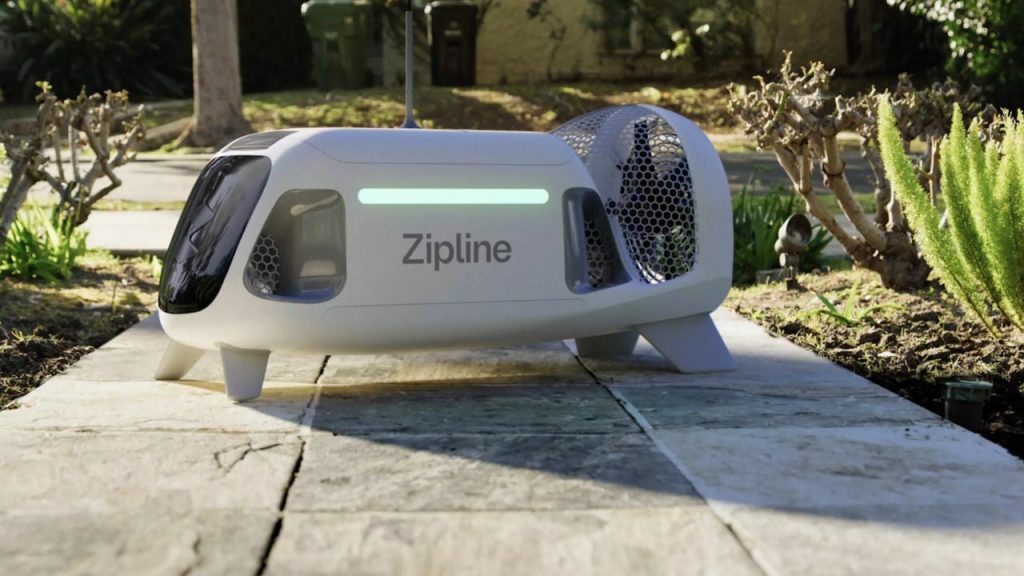Zipline, a California-based startup, has unveiled its latest autonomous drone platform designed to provide efficient and accurate everyday delivery to homes across the United States, including in busy residential areas. Dubbed Platform 2 or P2 Zip, the new drone uses a tether to deliver goods down to customers at a target location as small as a patio table or porch steps.
The new design can carry between 6 and 8 pounds of goods and features propellers that enable it to hover and remain stable even in wind or rain. The new platform can complete 10-mile deliveries in around 10 minutes, delivering up to seven times faster than traditional automobile delivery. Additionally, each P2 Zip can fly up to 24 miles from dock to dock, charging at each dock before collecting its next delivery.
See also: Ford Motors Patents Drone-Vehicle Integration for Future Use
Zipline’s new platform also features docking and charging hardware that can either be attached to a building’s exterior or as a freestanding structure. When the drones return from a delivery, they automatically dock themselves on the platform, releasing their empty load and collecting a new one.
Founded in 2014, Zipline first partnered with the Government of Rwanda to deliver blood, medication, and other health supplies to clinics and hospitals throughout the country. Since then, the startup has expanded to six other countries, with its Zip drone having flown more than 38 million miles.
New customers include Michigan Medicine, Intermountain Health, and MultiCare Health System, which are set to use the autonomous drones to deliver prescriptions to in-house pharmacies.
See also: Polestar announced Polestar O2 electric roadster concept with an integrated drone
“Over the last decade, global demand for instant delivery has skyrocketed, but the technology we’re using to deliver is 100 years old,” said Zipline CEO Keller Rinaudo Cliffton. “We’re still using the same 3,000-pound, gas combustion vehicles, driven by humans, to make billions of deliveries that usually weigh less than 5 pounds. It’s slow, it’s expensive, and it’s terrible for the planet.
“Our new service is changing that and will finally make deliveries work for you and around your schedule. We have built the closest thing to teleportation ever created – a smooth, ultrafast, convenient, and truly magical autonomous logistics system that serves all people equally, wherever they are.”
This year, Zipline plans to conduct high-volume flight tests using about 100 aircraft. According to the company, the first customer deployment of P2 will follow shortly after that. With its new autonomous drone platform, Zipline aims to revolutionize delivery and make it more efficient, convenient, and sustainable for everyone.
